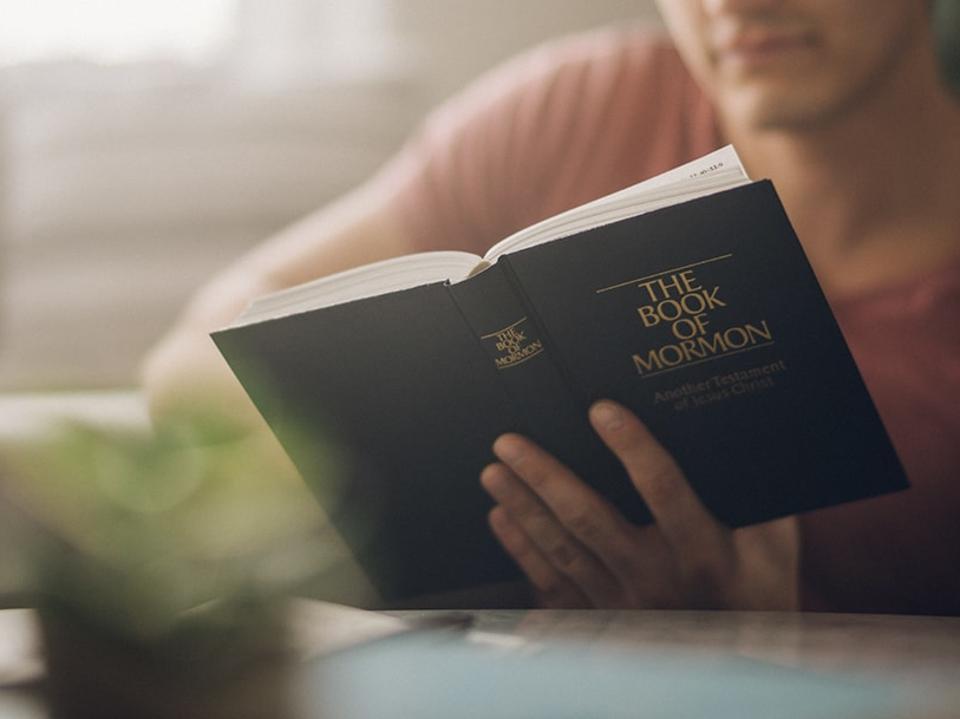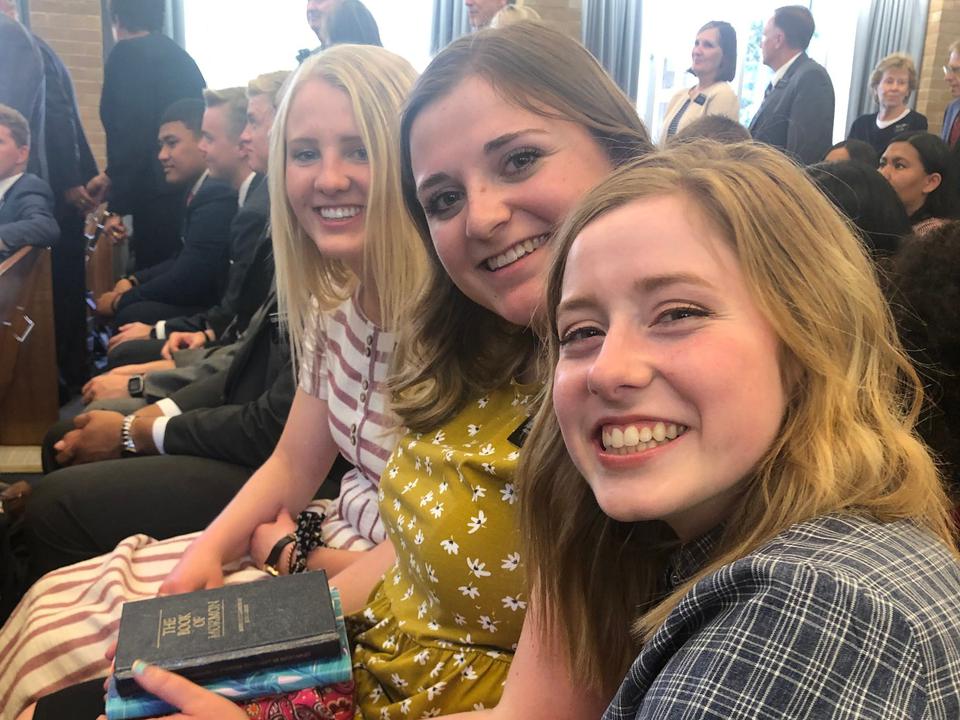The following op-ed was written by Richard Hunter, the Pacific Area Communication Director for The Church of Jesus Christ of Latter-day Saints.
You may have seen the ads promoting the Book of Mormon musical, which is coming to Auckland this month.
Now, I love the Book of Mormon, as a volume of scripture, and I love music—but I have decided I won’t be seeing the Book of Mormon musical.
Here’s a few reasons why.
First, Mormons—or more respectfully, members of The Church of Jesus Christ of Latter-day Saints—have absolutely nothing to do with the musical. It is a Broadway play written and produced without any consultation with or support from my church.
The writers and producers are using the name of the Book of Mormon, and likenesses of young Latter-day Saint missionaries—but I understand from reviews and articles that what is on the stage is a parody, not reality.
The language in the musical is rough, I am told. I prefer musicals and other entertainment that do not include swearing or blasphemy. Shows that are uplifting, that I would be comfortable attending with my family.
The show mocks a volume of sacred scripture that I love. The actual Book of Mormon is another testament of Jesus Christ, a companion to the Holy Bible. Reading from it every day helps me become a better person—a better husband, father and friend. And it has a similar influence on millions of others around the world.

In addition, the musical depicts members of my faith and the people of Uganda in ways that are not only inaccurate, but also disrespectful. While there is so much in this world that distorts and mocks, I want to see art and entertainment that inspires minds, lifts hearts, and builds bridges.
Of course, we all have the freedom to read, listen to, or view whatever we choose. So, if any of my friends, relatives or neighbours see the play, I won’t be upset. I won’t be found outside the Civic Theatre angrily protesting, waving a placard. And I can’t imagine any other members of my faith doing the same.
As the musical has played in various cities around the world, my church has been saying the same thing: “The production may attempt to entertain audiences for an evening, but the Book of Mormon as a volume of scripture will change people's lives forever by bringing them closer to Christ.”
So rather than making Latter-day Saints upset, many in my faith see the musical as an opportunity to correct misunderstandings and share their beliefs and experiences.
When you mention the musical to your Latter-day Saint neighbour, work associate or friend, don’t be surprised if they say something like, “You know what, I’m not going to see it…but I would be happy to tell you about the actual Book of Mormon…and introduce you to some real Latter-day Saint missionaries (smile)….”
Then you may hear a description of how the Book of Mormon helps them and their family. And how much they appreciate the selfless service of young and senior missionaries the world over.
You probably won’t have to go too far to find a friend, relative or other acquaintance who has served as a Latter-day Saint missionary somewhere in the world. Ask them how much they love the people in the country where they served, without pay and at their own or family’s expense. How they grew as an individual. How they learned how to budget, to cook and do their laundry, to put others’ needs above their own. And how they learned how to pray, and work long days and weeks helping individuals, families and communities.
When the musical opened in 2011, Michael Otterson, who was the Church’s Managing Director of Public Affairs, wrote an op-ed article for the Washington Post, titled, “Why I won’t be seeing the Book of Mormon Musical.”
He noted that during the seven years the Book of Mormon musical was in the making, The Church of Jesus Christ of Latter-day Saints was working hard to alleviate suffering in Africa.
“The World Health Organization estimates that 884 million people worldwide don’t have access to clean water,” he wrote.
“This is a huge problem in Africa, not only because of water-borne diseases but because kids who spend hours each day walking to and from the nearest well to fill old gasoline cans with water cannot attend school. According to Church records, during those seven years, more than four million Africans in 17 countries have gained access to clean drinking water through [Latter-day Saint] humanitarian efforts to sink or rehabilitate boreholes.”
Otterson shared other ways The Church of Jesus Christ of Latter-day Saints helped Africans during this seven-year period:
- More than 34,000 physically handicapped African kids now have wheelchairs through the same [Latter-day Saint]-sponsored humanitarian program. To see a legless child whose knuckles have become calloused through walking on his hands lifted into a wheelchair may be the best way to fully understand the liberation this brings.
- Millions of children, meanwhile, have now been vaccinated against killer diseases like measles as the Church has sponsored or assisted with projects in 22 African countries.
- More than 126,000 Africans have had their sight restored or improved through [Latter-day Saint] partnership with African eye care professionals in providing training, equipment and supplies.
- 52,000 Africans have been trained to help new-borns who otherwise would never take a first breath. Training in neonatal resuscitation has also been a big project for [Latter-day Saints] in Africa.
Fast forward to today and the Church’s work in Africa and around the world to alleviate suffering and help individuals improve their lives continues at pace.
In 2019 The Church of Jesus Christ of Latter-day Saints completed the following humanitarian projects around the world:
- Emergency response: 194 projects in 64 countries and territories
- Vision care: 129,819 people helped in 32 countries and territories
- Maternal and newborn care: 83,555 people assisted in 27 countries and territories
- Food security: 181,398 people helped in 15 countries and territories
- Clean water and sanitation: 316,790 people helped in 26 countries and territories
- Immunizations: Six campaigns to eliminate disease in developing countries
- Wheelchairs: 52,381 people helped in 41 countries and territories
- Refugee response: 387 projects in 48 countries and territories
- International community projects: 994 projects in 107 countries and territories
This is why I won’t be seeing the Book of Mormon musical. Because I prefer reality over parody, especially when it comes to real people and serious issues.
The real Book of Mormon is a sacred volume of scripture that inspires real hope and real change for the better. And real Latter-day Saint missionaries are doing substantive, beneficial and sustainable work in Africa and around the world.
This kind of quiet, day-in-day-out, selfless service that Latter-day Saint humanitarian and other missionaries are giving deserves our respect and appreciation—perhaps even a standing ovation.
